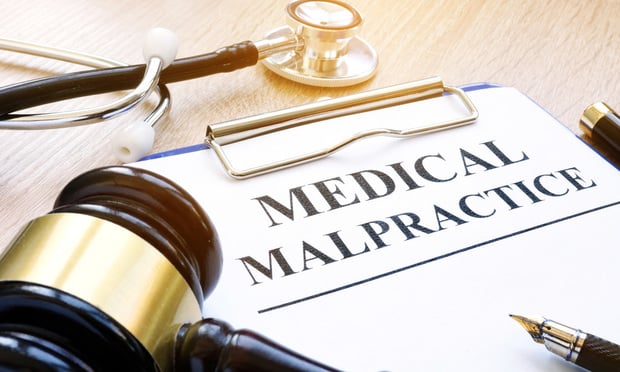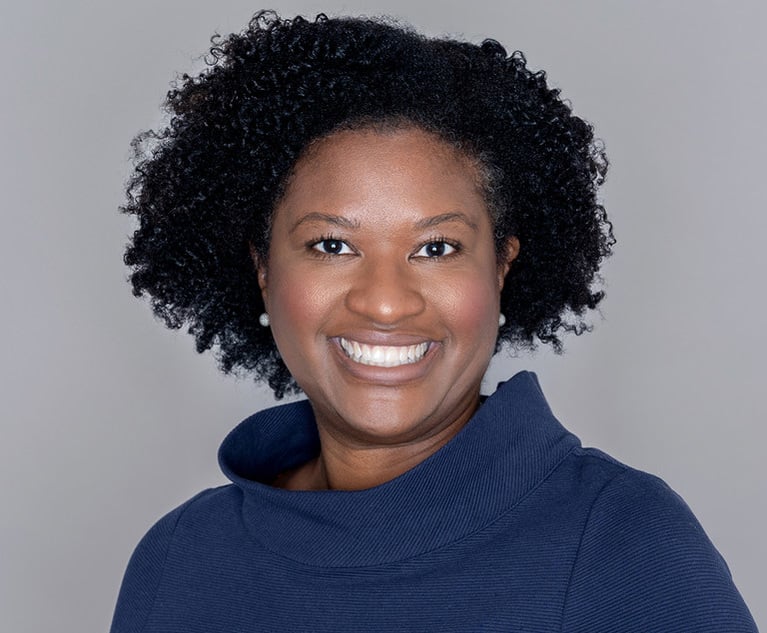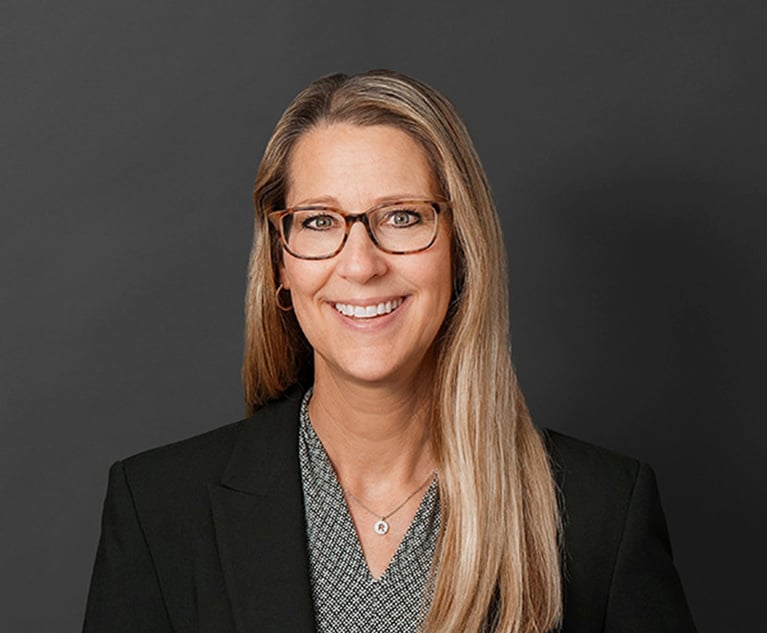Lawmakers Eye Proposal to Broaden Med Mal Venue in Pa. as Lawyers and Industry Officials Present Pros and Cons
Testimony focused on the potential impact of repealing 17-year-old venue rules that mandate plaintiffs may only bring medical malpractice lawsuits in the venue where the injury occurred.
June 25, 2019 at 03:54 PM
4 minute read
 Photo: Shutterstock
Photo: Shutterstock
Lawyers and health care company officials debated new Pennsylvania medical malpractice venue rules before a panel of state legislators Tuesday, with opponents arguing the proposals would lead to “skyrocketing” costs and others saying they would increase access to justice for injured persons.
The Legislative Budget and Finance Committee, which is made up of six state senators and six state representatives, heard three hours of testimony from three health care professionals and five prominent attorneys from across the state. Testimony focused on the potential impact of repealing 17-year-old venue rules that mandate plaintiffs may only bring medical malpractice lawsuits in the venue where the injury occurred.
Raynes Lawn Hehmeyer attorney Timothy Lawn, who is president of the Philadelphia Trial Lawyers Association, said the changes, which would allow plaintiffs to sue defendants in any county where they do business, would increase accountability in the health care industry.
“Accountability is what is needed if you really want to improve safety and reduce errors,” he said. ”Unfortunately, corporations do not respond unless and until a jury tells them to.”
Opponents, however, warned that the rule change would lead to venue-shopping by plaintiffs attorneys and would cause a spike in medical liability insurance and health care costs, which would cause physicians to flee Pennsylvania.
The 2002 changes were enacted as part of a suite of administrative court rules and legislation—known as the Medical Care Availability and Reduction of Errors (MCARE) Act—that were aimed at curbing what some saw as out-of-control medical malpractice litigation and exploding health care costs. According to opponents, abandoning the current venue rules would return the state to that situation.
Barley Snyder attorney Katherine Kravitz likened repealing the venue rules to parents not vaccinating their children.
“It defies logic to do away with a tried and true prophylactic measure when the problems it was designed to address are still there,” she said.
Members on the legislative panel peppered those who offered testimony with questions, but offered little insight into their thoughts on the proposed changes.
The panel is set to hear more testimony on the issue in a second hearing Wednesday.
The Pennsylvania Supreme Court's Civil Procedural Rules Committee proposed the new rules in December. The proposal included an explanatory comment citing court statistics showing the total number of medical malpractice cases have dropped nearly 50% from the pre-MCARE yearly average. The comment also said the drop has caused “a decrease of the amount of claim payments resulting in far fewer compensated victims of medical negligence.”
The proposal, however, caused an uproar in the health care industry and defense bar, and, before the time period for making comments about the proposal expired, Chief Justice Thomas G. Saylor announced that the high court would hold off on making the changes until after a legislative committee could study the potential impact.
Representatives from the health care industry said Tuesday that, with mergers and expansions of hospital networks, the face of health care has changed significantly in Pennsylvania over the past 15 years. To now subject facilities to a wider range of venues—especially in Philadelphia, which is widely seen as a plaintiff-friendly venue—would likely damage the quality of care for small and rural health care providers, they argued.
“The proposal is not in the public interest,” Warren Kampf, senior vice president of the Hospital and Healthsystem Association of Pennsylvania, said.
However, Lisa Benzie of Navitsky, Olson & Wisneski, who is the immediate past president of the Pennsylvania Association for Justice, noted that all other defendants in Pennsylvania can be sued in any venue where they regularly do business, and countered arguments that the rule changes would lead to venue-shopping by contending that the current rules essentially allow for forum-shopping by defendants because it allows the companies to select the venue where they want to be sued.
“If you don't want to be sued in a particular county, don't do business there. That's how it works for every other corporation,” she said.
At the close of Tuesday's proceedings, Sen. Robert Mensch, R-Bucks, who is chairman of the committee, said he had been expecting more quantitative evidence from those who came before the committee, and he hopes to be able to present the General Assembly with a data-heavy report, rather than something based on anecdotes.
“We're scratching our heads a little saying, 'Where is the quantification?'” he said. “We're going to be continuing to search for specifics.”
This content has been archived. It is available through our partners, LexisNexis® and Bloomberg Law.
To view this content, please continue to their sites.
Not a Lexis Subscriber?
Subscribe Now
Not a Bloomberg Law Subscriber?
Subscribe Now
NOT FOR REPRINT
© 2025 ALM Global, LLC, All Rights Reserved. Request academic re-use from www.copyright.com. All other uses, submit a request to [email protected]. For more information visit Asset & Logo Licensing.
You Might Like
View All


Penn State Dickinson Law Dean Named President-Elect of Association of American Law Schools
Trending Stories
- 1Courts Grapple With The Corporate Transparency Act
- 2FTC Chair Lina Khan Sues John Deere Over 'Right to Repair,' Infuriates Successor
- 3‘Facebook’s Descent Into Toxic Masculinity’ Prompts Stanford Professor to Drop Meta as Client
- 4Pa. Superior Court: Sorority's Interview Notes Not Shielded From Discovery in Lawsuit Over Student's Death
- 5Kraken’s Chief Legal Officer Exits, Eyes Role in Trump Administration
Who Got The Work
J. Brugh Lower of Gibbons has entered an appearance for industrial equipment supplier Devco Corporation in a pending trademark infringement lawsuit. The suit, accusing the defendant of selling knock-off Graco products, was filed Dec. 18 in New Jersey District Court by Rivkin Radler on behalf of Graco Inc. and Graco Minnesota. The case, assigned to U.S. District Judge Zahid N. Quraishi, is 3:24-cv-11294, Graco Inc. et al v. Devco Corporation.
Who Got The Work
Rebecca Maller-Stein and Kent A. Yalowitz of Arnold & Porter Kaye Scholer have entered their appearances for Hanaco Venture Capital and its executives, Lior Prosor and David Frankel, in a pending securities lawsuit. The action, filed on Dec. 24 in New York Southern District Court by Zell, Aron & Co. on behalf of Goldeneye Advisors, accuses the defendants of negligently and fraudulently managing the plaintiff's $1 million investment. The case, assigned to U.S. District Judge Vernon S. Broderick, is 1:24-cv-09918, Goldeneye Advisors, LLC v. Hanaco Venture Capital, Ltd. et al.
Who Got The Work
Attorneys from A&O Shearman has stepped in as defense counsel for Toronto-Dominion Bank and other defendants in a pending securities class action. The suit, filed Dec. 11 in New York Southern District Court by Bleichmar Fonti & Auld, accuses the defendants of concealing the bank's 'pervasive' deficiencies in regards to its compliance with the Bank Secrecy Act and the quality of its anti-money laundering controls. The case, assigned to U.S. District Judge Arun Subramanian, is 1:24-cv-09445, Gonzalez v. The Toronto-Dominion Bank et al.
Who Got The Work
Crown Castle International, a Pennsylvania company providing shared communications infrastructure, has turned to Luke D. Wolf of Gordon Rees Scully Mansukhani to fend off a pending breach-of-contract lawsuit. The court action, filed Nov. 25 in Michigan Eastern District Court by Hooper Hathaway PC on behalf of The Town Residences LLC, accuses Crown Castle of failing to transfer approximately $30,000 in utility payments from T-Mobile in breach of a roof-top lease and assignment agreement. The case, assigned to U.S. District Judge Susan K. Declercq, is 2:24-cv-13131, The Town Residences LLC v. T-Mobile US, Inc. et al.
Who Got The Work
Wilfred P. Coronato and Daniel M. Schwartz of McCarter & English have stepped in as defense counsel to Electrolux Home Products Inc. in a pending product liability lawsuit. The court action, filed Nov. 26 in New York Eastern District Court by Poulos Lopiccolo PC and Nagel Rice LLP on behalf of David Stern, alleges that the defendant's refrigerators’ drawers and shelving repeatedly break and fall apart within months after purchase. The case, assigned to U.S. District Judge Joan M. Azrack, is 2:24-cv-08204, Stern v. Electrolux Home Products, Inc.
Featured Firms
Law Offices of Gary Martin Hays & Associates, P.C.
(470) 294-1674
Law Offices of Mark E. Salomone
(857) 444-6468
Smith & Hassler
(713) 739-1250






